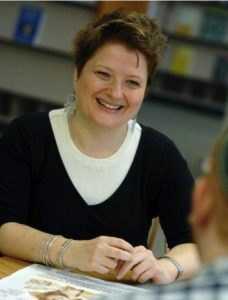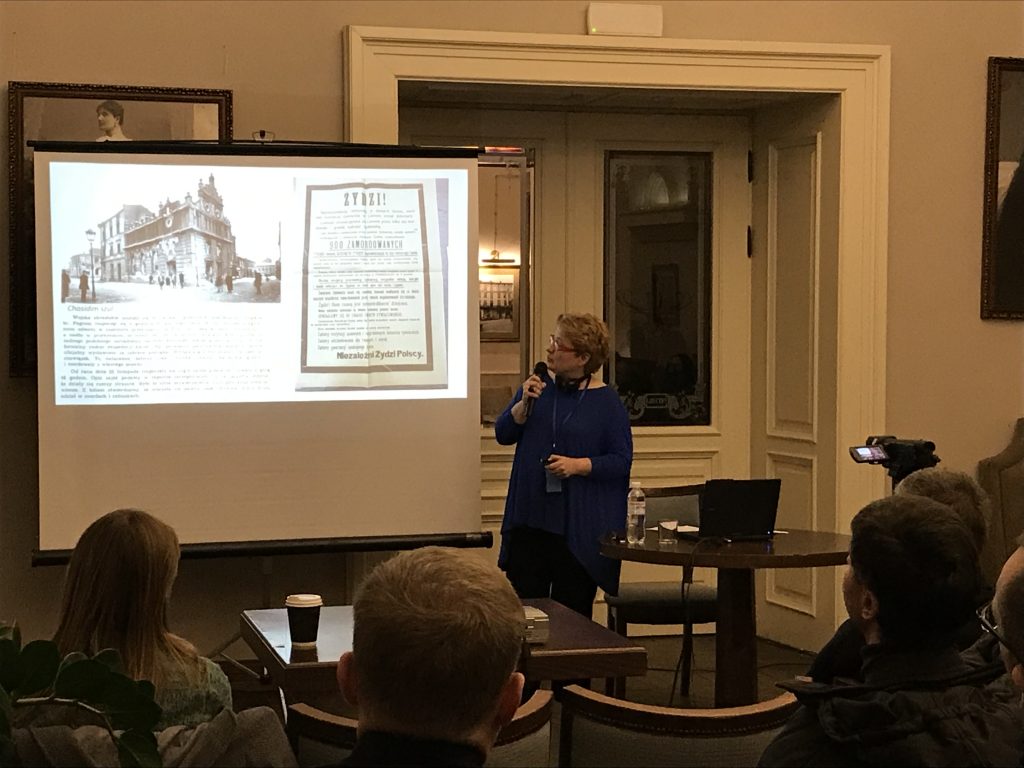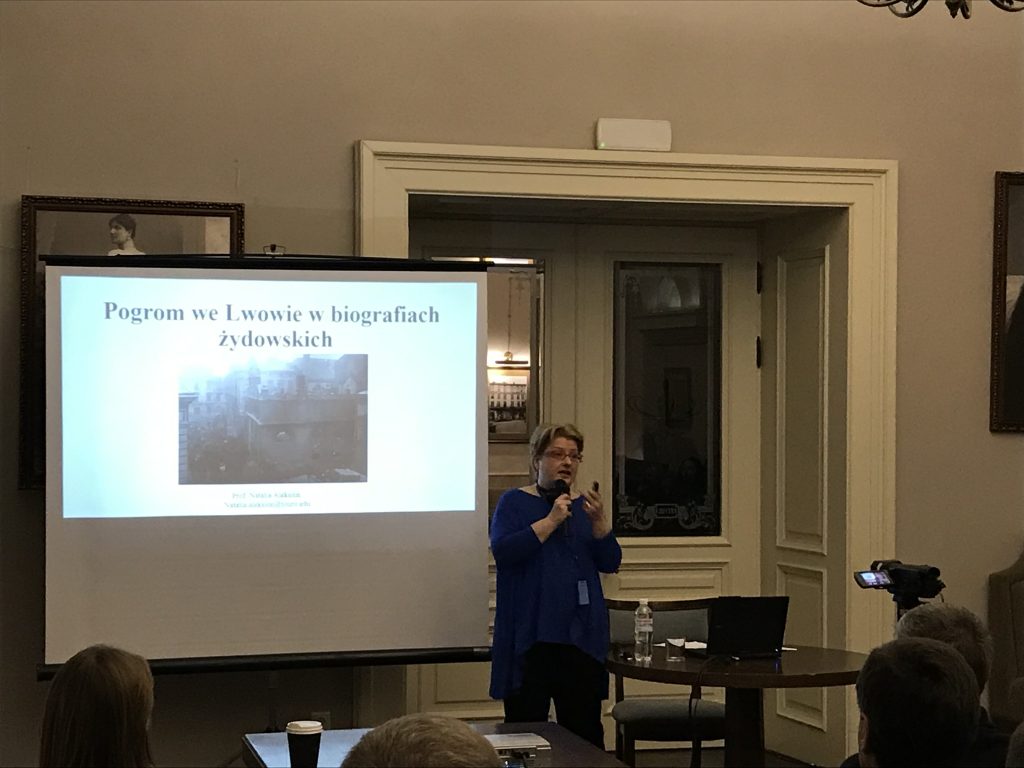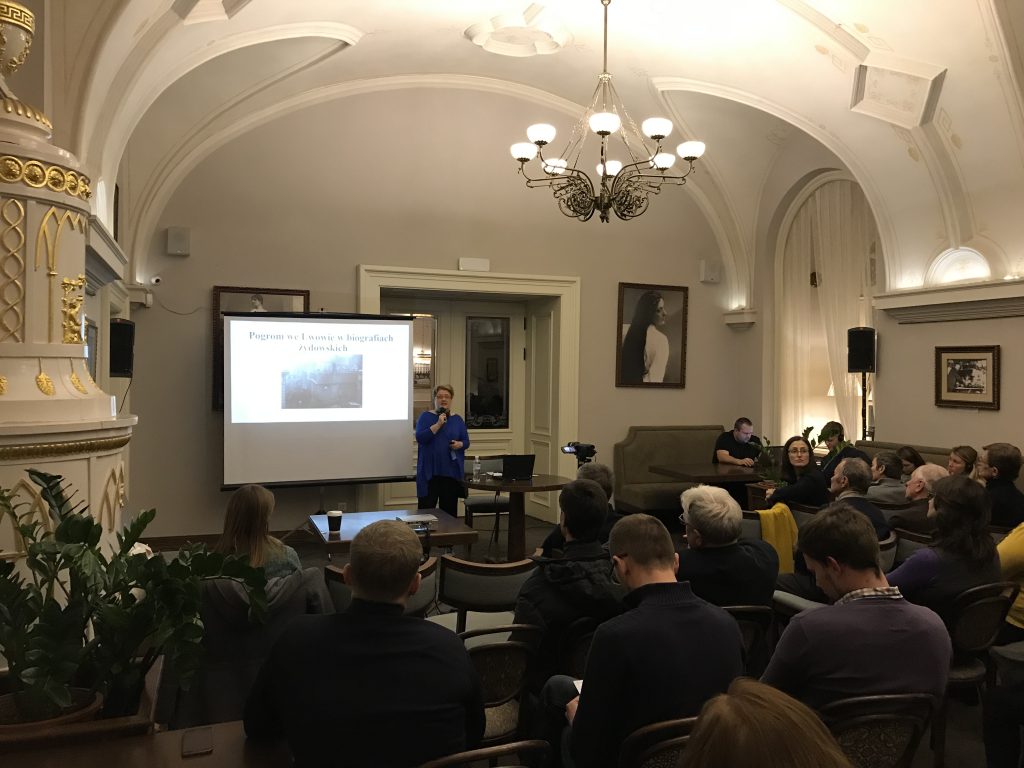1918 in the Biographies of Lviv Jews
Natalia Aleksiun
Touro College, Graduate School of Jewish Studies, New York22.11.2018, 18:30
Ratusha Restaurant (Rynok Sq. 1), Lviv
This lecture explores the complex attitudes of the Jewish community in Lviv in the turbulent year 1918. In particular, it examines the points of view of the Jewish communal leadership and intelligentsia regarding the political changes that occurred as both the Polish and Ukrainian national movements made their claims for the city. What did the city mean for its thousands for Jewish inhabitants, its religious, cultural, and political institutions? How did various Jewish organizations seek to navigate and negotiate during this thorny period of tensions and violence? Beyond communal leadership, individual Jews, both men and women, found their identities and loyalties challenged. For the Jewish inhabitants of Lviv the November pogrom became a traumatic watershed. The memory of it underscored continued Jewish vulnerability in the aftermath of the Great War.
The lecture will be conducted in Polish with simultaneous translation.

Natalia Aleksiun
is Associate Professor of Modern Jewish History at Touro College, Graduate School of Jewish Studies, New York. She received her first doctoral degree at Warsaw University, as well as Oxford, Jerusalem and New York, where she received her second doctoral degree at NYU. She published a monograph titled Where to? The Zionist Movement in Poland, 1944-1950 (in Polish), and numerous articles in leading East European Studies as well as Jewish Studies Journals. She is currently working on a new book about the so-called cadaver affair at European Universities in the 1920s and 1930s and on a project dealing with daily lives of Jews in hiding in Galicia during the Holocaust
This lecture is a part of the public program "City on the Line: Lviv in November 1918." It invites the general public to discuss the centenary of the end of the Great War and the establishment of the Western Ukrainian People’s Republic in the broader context of the fall of empires, revolutions, the making of new national states, and social and cultural transformations.
Credits
Cover Image: Street in the Jewish quarter, 1910. Collection of Claudia Erdheim/ Urban media archive



